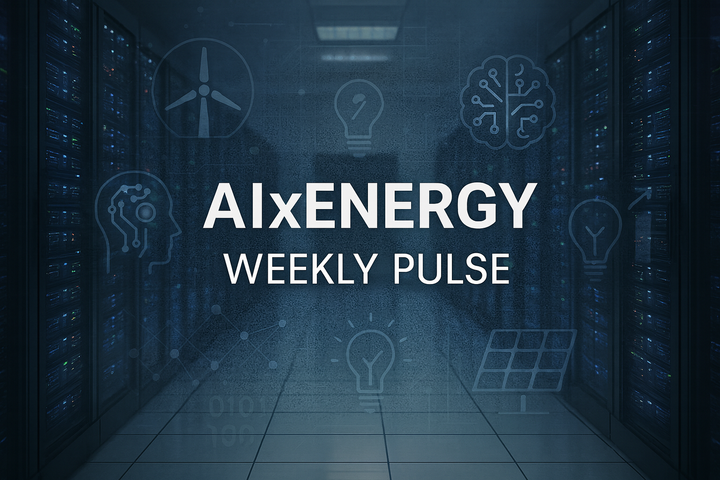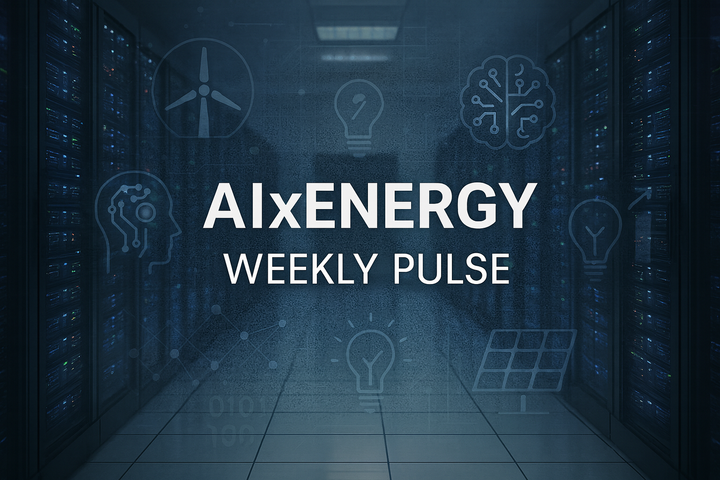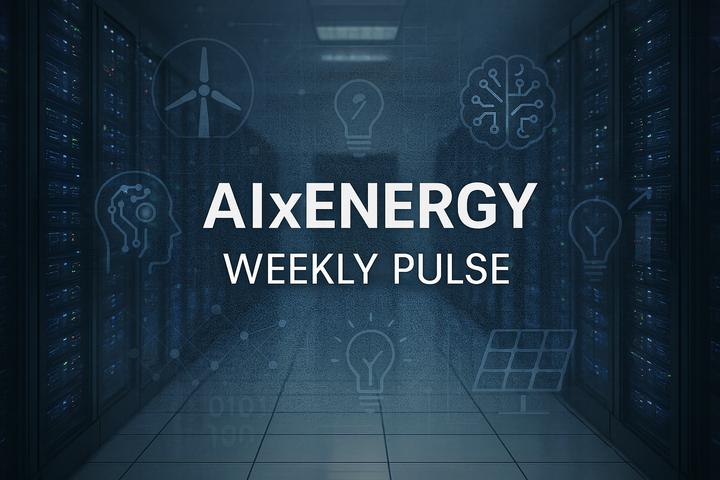11.03.25: AIs Power Surge: Data Centers, Solar Investments, and LLM Advancements
Meta’s 385-MW solar deal and NVIDIA’s 4-bit AI training breakthrough show how tech giants are reshaping energy use. As renewables power AI data centers and efficiency gains cut compute demand, the race to decarbonize digital infrastructure is redefining the global power landscape.
Meta, the parent company of Facebook, inked a deal for 385 MW of solar power to fuel its AI data center in Louisiana, marking a significant stride in green energy adoption by big tech (Solar Power World). On a different front, Nvidia's researchers have pushed the boundaries of AI training, achieving 8-bit performance with 4-bit Low-Level Memory (LLM), a move that could drastically reduce energy consumption and demand in data centers (Venturebeat Com). These developments highlight how AI and energy are increasingly intertwined, with tech giants leveraging renewable energy for data processing needs, while advancements in AI training techniques promise to cut energy demands. The stakes are high: reducing the carbon footprint of data centers, enhancing the efficiency of AI training, and the potential reshaping of the power landscape.
Nvidia's NVFP4 technique allows large language models (LLMs) to train on a 4-bit quantized format, matching 8-bit performance while halving memory use and compute demand. This advancement could cut inference costs, making LLM training more financially accessible to more organizations. Direct impacts on the energy sector remain unclear. Source: https://venturebeat.com/ai/nvidia-researchers-unlock-4-bit-llm-training-that-matches-8-bit-performance
Anthropic's AI model, Claude, recognized and articulated an injected concept of "betrayal," demonstrating an ability for AI introspection. This challenges AI limitations, suggesting models could observe their own processes. However, the article lacks explicit linkages to energy systems, leaving potential implications for AI's role in energy optimization and distribution speculative. Source: https://venturebeat.com/ai/anthropic-scientists-hacked-claudes-brain-and-it-noticed-heres-why-thats
Meta, Facebook's parent company, has signed long-term power purchase agreements for 385 MWAC of solar energy from Treaty Oak Clean Energy's projects in Morehouse and Sabine Parishes, Louisiana, to power its AI data center. This move reaffirms Meta's commitment to clean energy and sustainability, while meeting the energy demands of its AI infrastructure. The strategic implication is that hyperscale operators, like Meta, are increasingly securing renewable energy sources to power their AI capacities, highlighting a growing trend of renewable PPAs in the AIxEnergy sector. Source: https://www.solarpowerworldonline.com/2025/10/meta-signs-power-agreement-on-385-mw-of-solar-for-louisiana-ai-data-center/
AI's surging computing needs challenge data center operators to marry scale with sustainability. Employing enterprise automation platforms and digital grid management, these operators integrate renewables for enhanced performance, efficiency, and profitability. The industry's move towards renewable energy sources underlines a commitment to sustainability despite AI's energy-intensive demands. Source: https://www.solarpowerworldonline.com/2025/10/building-tomorrows-data-center-today/
Semiconductor industry grapples with heat management, driving innovative cooling methods in AI data centers and high-transistor-density applications. The push for diamonds, lasers, and oil cooling signals urgent need for enhanced chip performance and reliability. However, the article fails to quantify the energy impact, leaving the exact role of thermal management innovation in AI hardware deployment ambiguous. Source: https://spectrum.ieee.org/thermal-management-chips
Dr Sama Bilbao y León, director general of the World Nuclear Association, probes nuclear energy's ability to fuel the global AI surge. With the absence of specific figures, the article leaves unanswered the question of nuclear power's speed of scale-up to match AI's rapid growth. The clear implication: nuclear energy could play a pivotal role in the AI revolution, if it can scale quickly enough to meet escalating energy demands. Source: https://www.datacenterknowledge.com/energy-power-supply/is-nuclear-energy-the-partner-to-power-a-global-ai-future
Microsoft's CEO, Satya Nadella, admits the company can't deploy all its AI chips due to insufficient power. This highlights the growing energy demands of AI technology and the potential strain on existing power infrastructure. Without specific numbers, the scale of required infrastructure upgrades remains uncertain. Source: https://www.tomshardware.com/tech-industry/artificial-intelligence/microsoft-ceo-says-the-company-doesnt-have-enough-electricity-to-install-all-the-ai-gpus-in-its-inventory-you-may-actually-have-a-bunch-of-chips-sitting-in-inventory-that-i-cant-plug-in
Bloom Energy, a fuel cell firm in California, is on track to reach 2 GW annual production capacity, targeting AI data centers needing on-site power. This shift could place Bloom Energy as a competitive player in the AI data center energy market. The connection of this strategy to AI and energy infrastructure, however, remains unclear. Source: https://www.utilitydive.com/news/bloom-energy-says-its-on-track-for-2-gw-annual-production-capacity/804291/
The RTX 4090 graphics card experienced an electrical leak, frying its VRAM and GPU core. The damage exposes the susceptibility of AI hardware to energy mishaps, potentially disrupting AI-dependent sectors. Prioritizing energy-efficient, durable hardware and stringent maintenance could bolster AI infrastructure reliability. Source: https://www.tomshardware.com/pc-components/gpus/gpu-surgeon-attempts-to-rescue-fatally-bent-rtx-4090-that-came-in-for-a-melted-power-connector-fix-autopsy-reveals-shorted-mosfet-that-killed-the-gpu-core-rare-failed-repair-attempt-from-skilled-technician
MIT's Lincoln Laboratory Supercomputing Center's new paper, the Lincoln AI Computing Survey (LAICS), underscores the growth in generative AI (GenAI) models' use. This increased usage is driving the need for more energy-efficient processors. As the energy demand of AI technology rises, the drive for energy-efficient computing advancements accelerates. Source: https://semiengineering.com/mits-survey-on-accelerators-and-processors-for-inference-with-peak-performance-and-power-comparisons/


